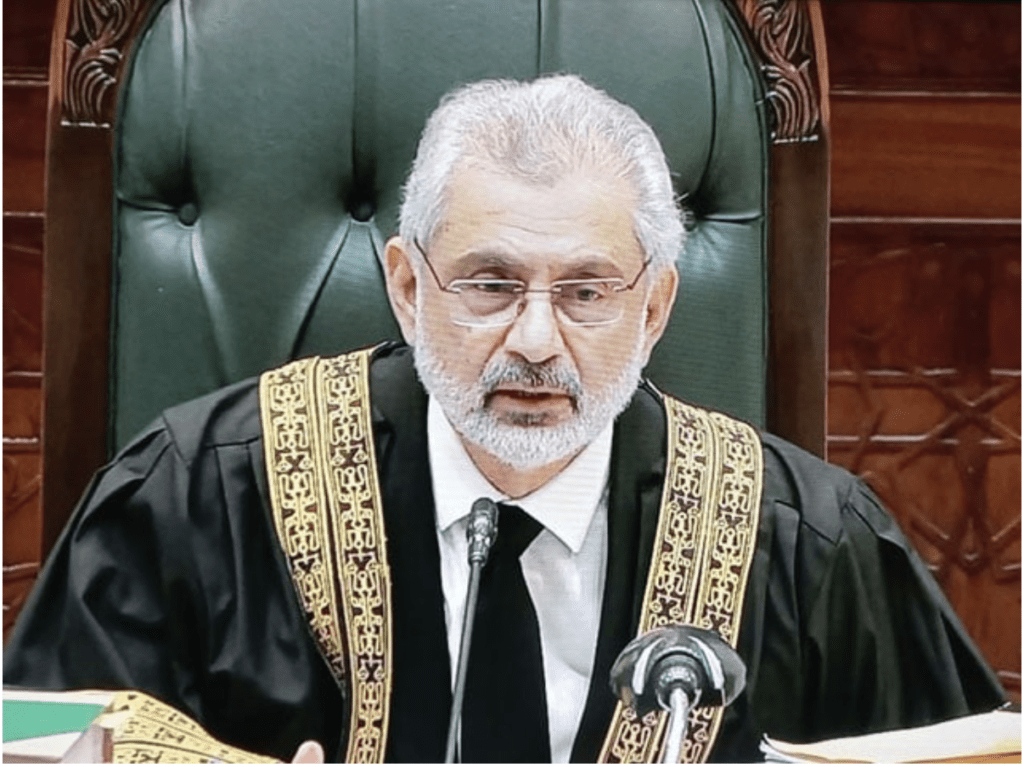His departure was relatively understated, utilizing the airport’s regular international lounge, indicative of his low-key approach amidst the high-profile nature of his former role

By our correspondent
ISLAMABAD: Former Chief Justice of Pakistan, Qazi Faez Isa, concluded his tenure on Thursday and departed for Istanbul on Friday, marking a significant transition in the country’s judicial landscape. Accompanied by his wife, Justice Isa boarded a Turkish Airlines flight at Islamabad airport, where he followed standard security protocols, complete with an assigned protocol staff to ensure a smooth departure. His exit from the high office, characterized by landmark rulings and bold stances on key legal issues, reflects not only the end of an era but also sets the stage for new leadership in the Supreme Court.
Justice Isa’s tenure has been noted for its emphasis on judicial independence and the rule of law. He was known for addressing contentious matters that have long been points of contention within Pakistan’s legal framework, including issues surrounding the judiciary’s accountability and the importance of upholding constitutional rights. His departure was relatively understated, utilizing the airport’s regular international lounge, indicative of his low-key approach amidst the high-profile nature of his former role.
On the very day of Isa’s departure, Yahya Afridi was sworn in as the new Chief Justice of Pakistan during an official ceremony held at Aiwan-e-Sadr, the President’s House. President Asif Ali Zardari administered the oath, attended by a host of dignitaries, including Prime Minister Shehbaz Sharif, senior military officials, and a variety of influential political figures. The gathering underscored the significance of the event, with key attendees like Speaker of the National Assembly Sardar Ayaz Sadiq, Punjab Chief Minister Maryam Nawaz, Balochistan Chief Minister Sarfraz Bugti, and Khyber-Pakhtunkhwa Chief Minister Ali Amin Gandapur present to witness the formal transfer of judicial power.
Justice Afridi’s swearing-in ceremony was also marked by the presence of Supreme Court Justices Ayesha Malik and Athar Minallah, signifying a continuity in the judiciary’s leadership amidst the transition. Their attendance highlighted the importance of solidarity within the court, as the judiciary faces pressing demands for reform and greater transparency in its operations.
The appointment of Yahya Afridi comes on the heels of the recent approval of the 26th Constitutional Amendment, a significant development that allowed for the formation of a special parliamentary committee to nominate candidates for the chief justice position. Afridi’s ascension to this pivotal role positions him at the helm of an institution that is under public scrutiny, as citizens increasingly call for judicial reform and accountability within the legal system.



